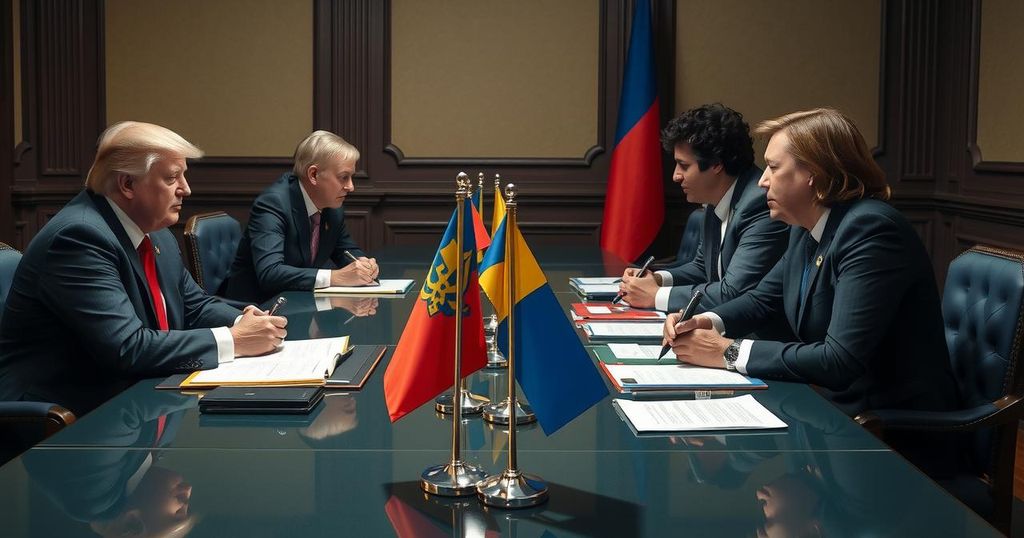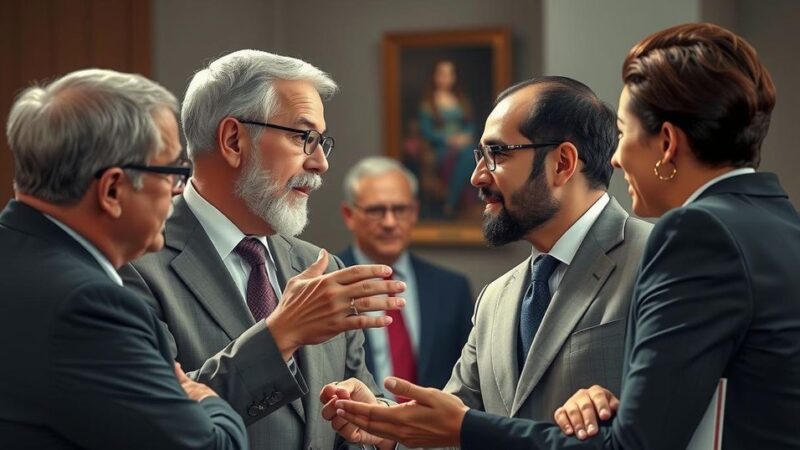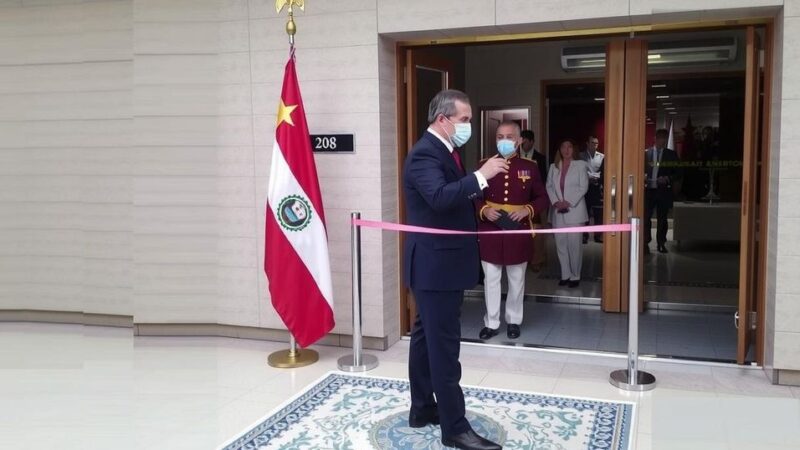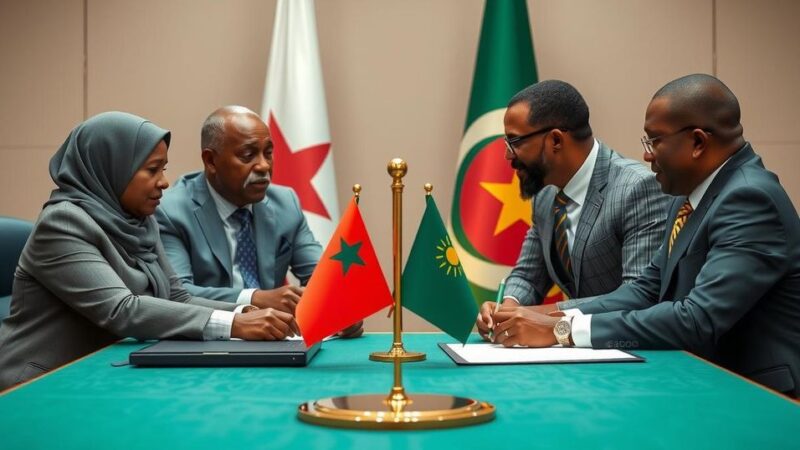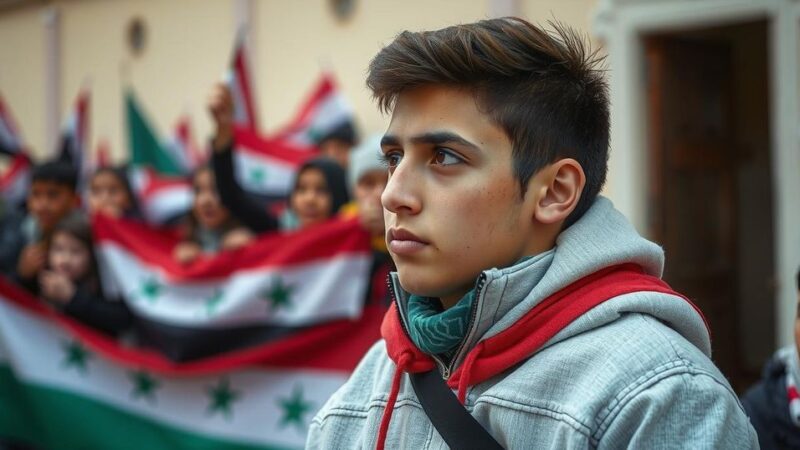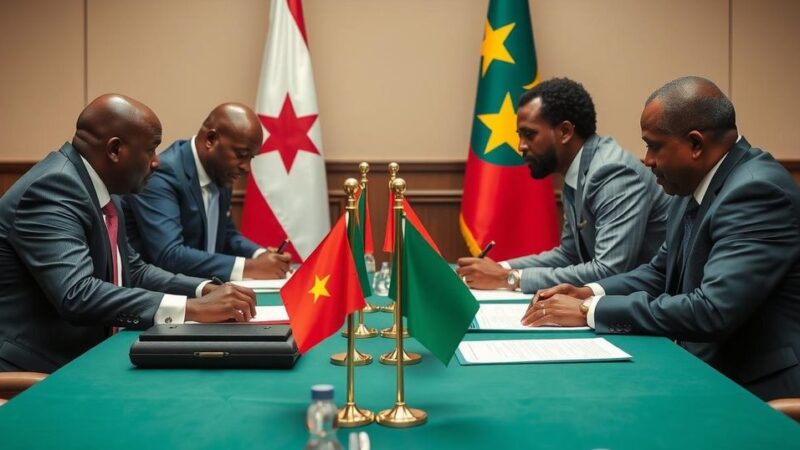Donald Trump has urged for an immediate ceasefire in Ukraine following his meeting with President Zelenskyy. He emphasized that negotiations are necessary to save lives, and proposed that China could assist in achieving peace. Zelenskyy seeks a robust peace with guarantees to prevent further Russian aggression. Meanwhile, the situation raises questions about U.S. support and NATO commitments amidst ongoing hostilities.
Former President Donald Trump has called for an immediate ceasefire in the ongoing conflict in Ukraine, asserting the need for negotiations to end the war with Russia. In a recent online statement following his meeting with Ukrainian President Volodymyr Zelenskyy in Paris, Trump emphasized the significant human cost of the war, urging both sides to engage in talks, citing that “there should be an immediate ceasefire and negotiations should begin. Too many lives are being needlessly wasted, too many families destroyed.” Trump claimed that Ukraine is keen on finding a resolution to the conflict and suggested that China might play a role in facilitating peace efforts.
President Zelenskyy characterized his discussions with Trump as constructive, although he did not elaborate on the details. He expressed the necessity for a “just and robust peace” to prevent future hostilities from Russia, advocating for reliable peace guarantees to protect Ukraine’s sovereignty. Amidst concerns, Zelenskyy’s team acknowledges that amid the difficulties faced at the frontlines, some form of negotiation may soon become essential.
Trump posited that recent geopolitical events, including the situation in Syria, could influence the potential for peace in Ukraine, suggesting that the inversion of alliances might contribute to stabilizing the region. Furthermore, in a recent interview, Trump indicated a willingness to reassess U.S. financial aid to Ukraine under his prospective presidency, connecting it to NATO commitments based on member contributions and fairness. This statement reflects a shift in the U.S. stance toward military alliances, leaving the future of NATO’s direct involvement in the conflict in question. Meanwhile, following these diplomatic discussions, Ukrainian children in frontline regions continue to express their hopes and dreams amid the stark realities of war, reflecting the deep emotional toll on the population.
The ongoing war in Ukraine, sparked by Russia’s invasion, has resulted in significant human and societal impact. With numerous lives lost and families affected, stakeholders are increasingly recognizing the need for ceasefire negotiations. Diplomatic efforts involving international leaders aim to build a consensus for peace, though nuanced security guarantees remain a critical concern for Ukraine. The context of U.S. foreign policy and NATO’s role complicates the discourse surrounding aid and military commitments to Ukraine, especially with differing perspectives on how to address the conflict.
In summary, Donald Trump’s call for an urgent ceasefire in Ukraine highlights the need for negotiations, stressing the immense losses incurred by both sides since the war began. While Zelenskyy remains cautious about the terms of peace, he is aware of the need for effective security guarantees. As discussions unfold, the implications of U.S. foreign policy under Trump’s potential administration pose questions about continued support for Ukraine and NATO’s role moving forward. The ongoing struggle of children caught in this conflict underscores the war’s harsh realities and the urgent need for peace.
Original Source: www.theguardian.com
